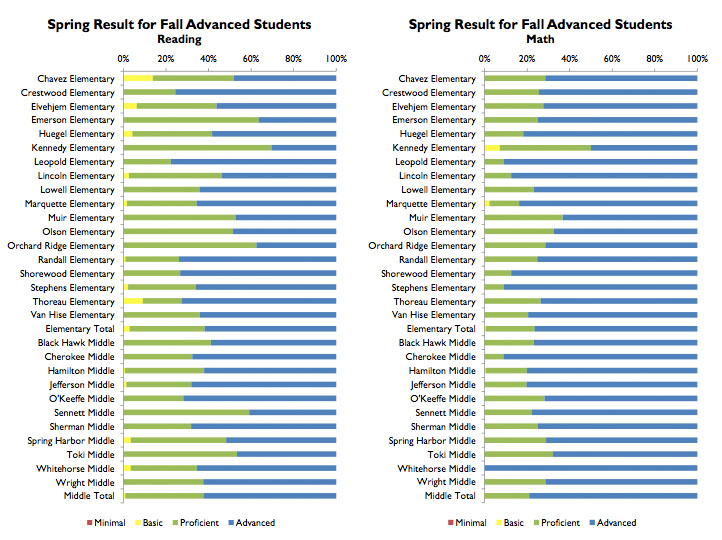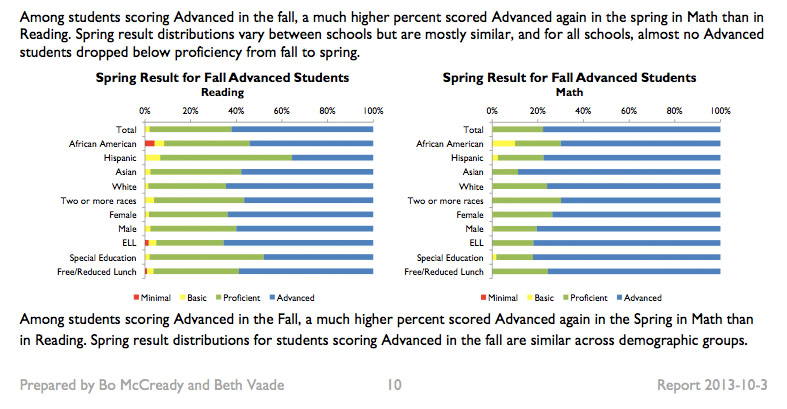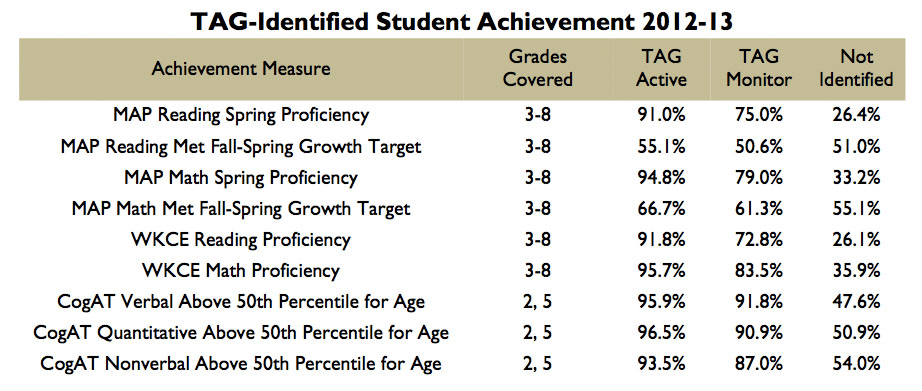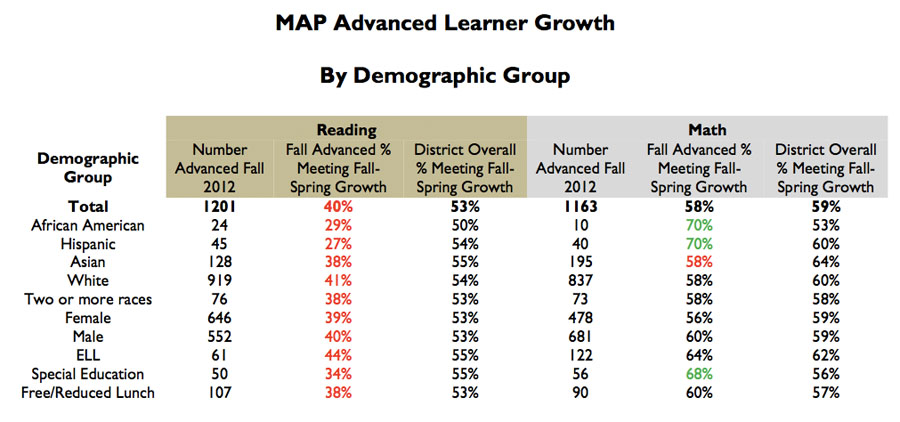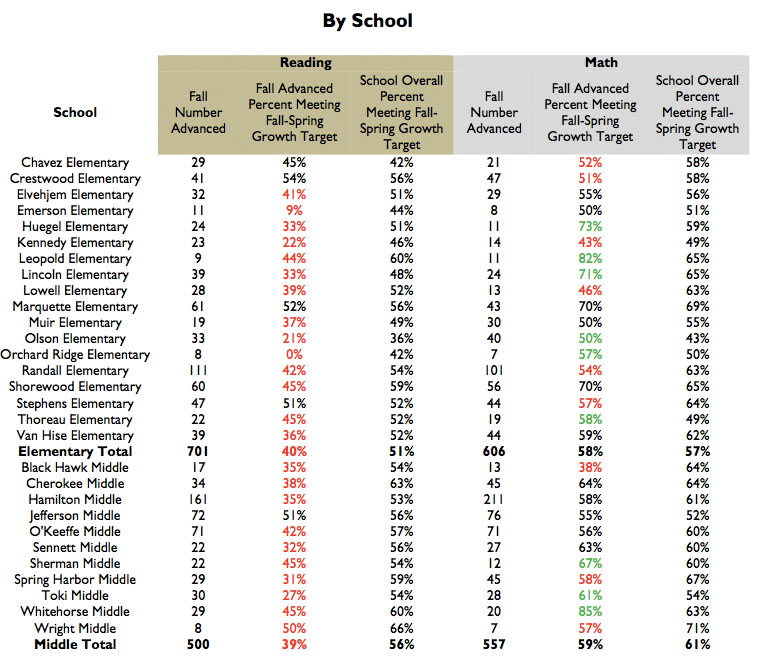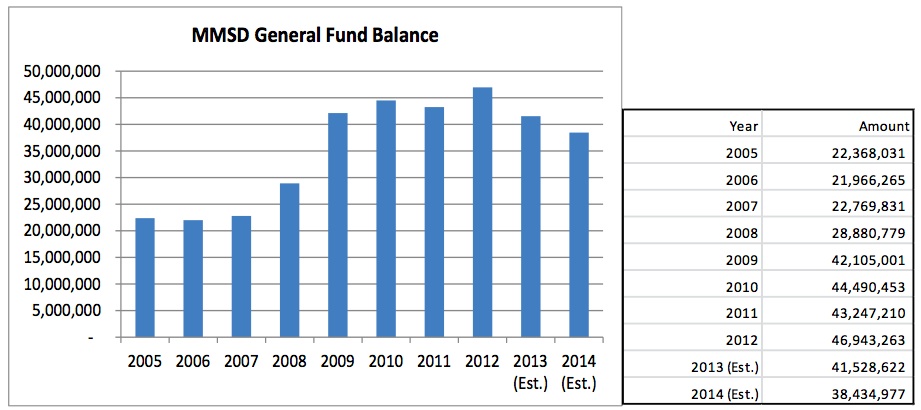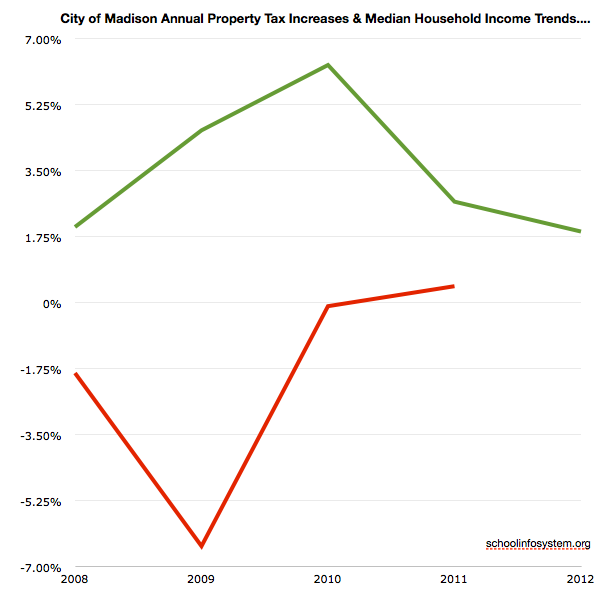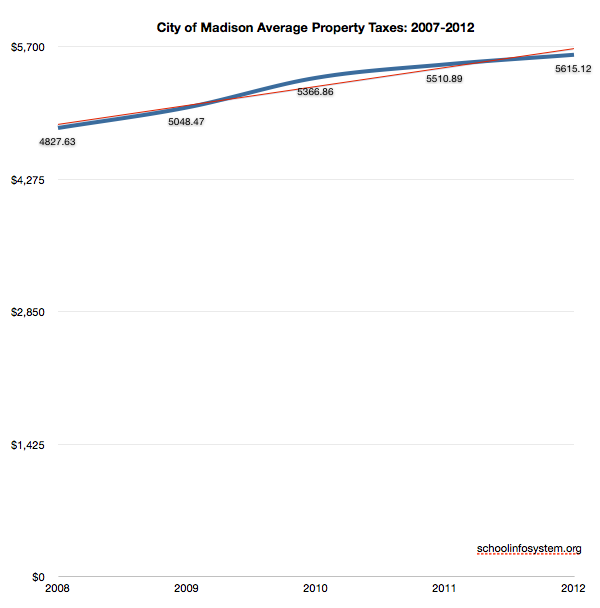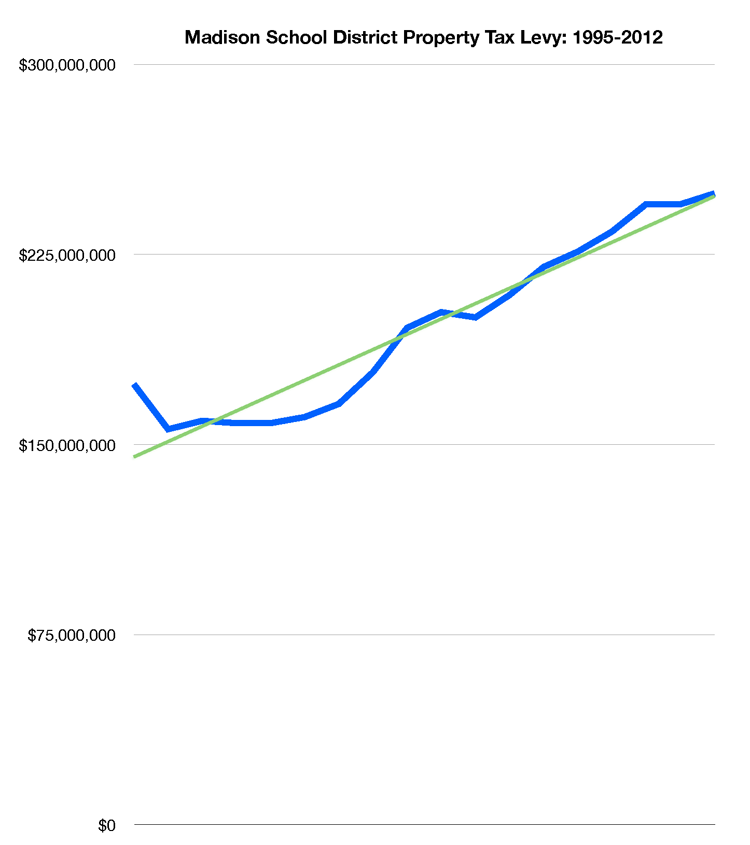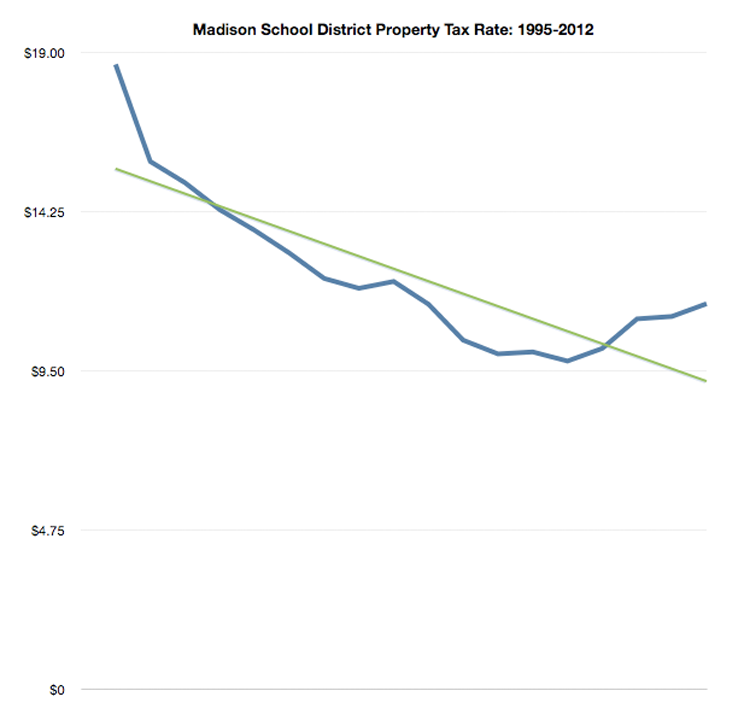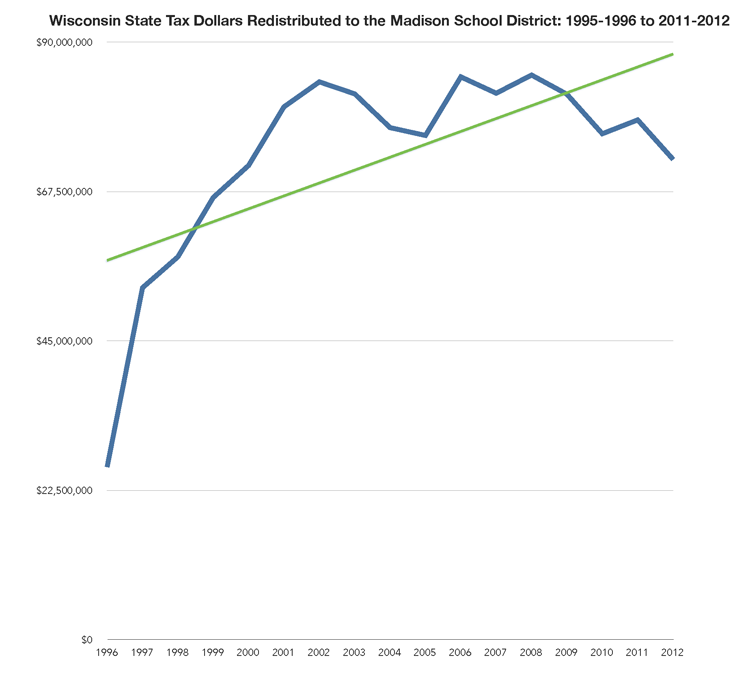ibmadison.com interviews Kaleem Caire about the proposed Madison Preparatory Academy, via a kind reader:
In Caire’s mind, kids can’t wait. Consider the data he cites from the ACT District Profile Report for the Madison Metropolitan School District’s 2010 graduating class:
Of students taking the ACT, average test scores differed significantly between African Americans and white students:
|
English |
Math |
Reading |
Science |
Composite |
| African Americans |
16.3 |
18.0 |
17.1 |
18.4 |
17.6 |
| Caucasian/White |
25.1 |
25.6 |
25.8 |
24.8 |
25.4 |
The percent of students meeting ACT College Readiness Benchmark Scores, broken out by ethnicity, for the 2010 graduating class seems more alarming:
|
Total Tested |
English (18) |
Math (22) |
Reading (21) |
Science (24) |
| All Students |
1,122 |
81% |
68% |
71% |
51% |
| African Americans |
76 |
38% |
24% |
25% |
9% |
| Caucasian/White |
733 |
90% |
77% |
79% |
60% |
| Hispanic |
71 |
59% |
39% |
45% |
18% |
| Asian/Pacific Isl. |
119 |
67% |
65% |
61% |
45% |
Numbers like these fuel Caire’s fire, and his vision for The Madison Preparatory Academy for Young Men. “I’m amazed that [the primarily white leadership in the city] hasn’t looked at this data and said, ‘wow!’ They have the power, but I don’t think anyone has looked at this. So [once again], I’m the angry black man.”
Caire understands the challenges that lie ahead. By November, he needs to formally propose the idea to the School Board, after which he will seek a planning grant from the Department of Public Instruction. He anticipates other hurdles along the way. Among them, a misconstrued conception. “Madison believes it’s creative, but the reality is, it’s not innovative.” Will the community accept this idea, or sit back and wait, he wonders.
Second: The resources to do it. “We can survive largely on what the school system can give us [once we’re up and running], but there’s seed money you need to get to that point.”
Third: The teacher’s union response. “No one knows what that will be,” Caire said. “The school board and district are so influenced by the teacher’s union, which represents teachers. We represent kids. To me, it’s not, ‘teachers at all costs,’ it’s ‘kids first.’ We’ll see where our philosophies line up.” He added that the Urban League and those behind the Charter School idea are not at all opposed to the teacher’s union, but the Prep School’s design includes, for example, a school day longer than the teacher’s contract allows. “This isn’t about compensation,” he said of the contract, “it’s about commitment. We don’t want red tape caught up in this, and we want to guarantee long-term success.”
Related: “They’re all rich, white kids and they’ll do just fine” — NOT! and outbound open enrollment.
